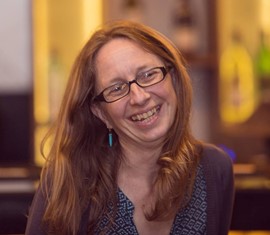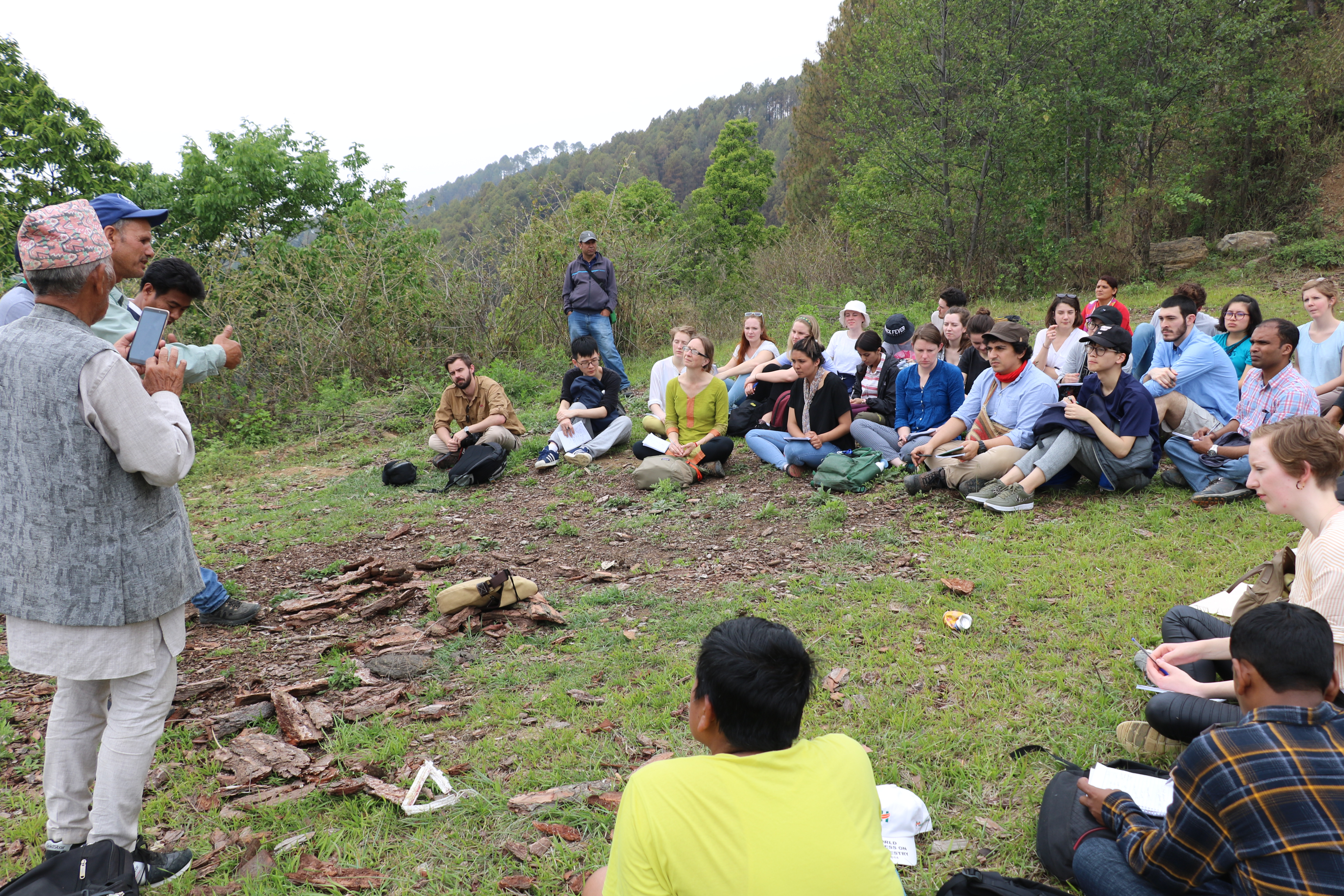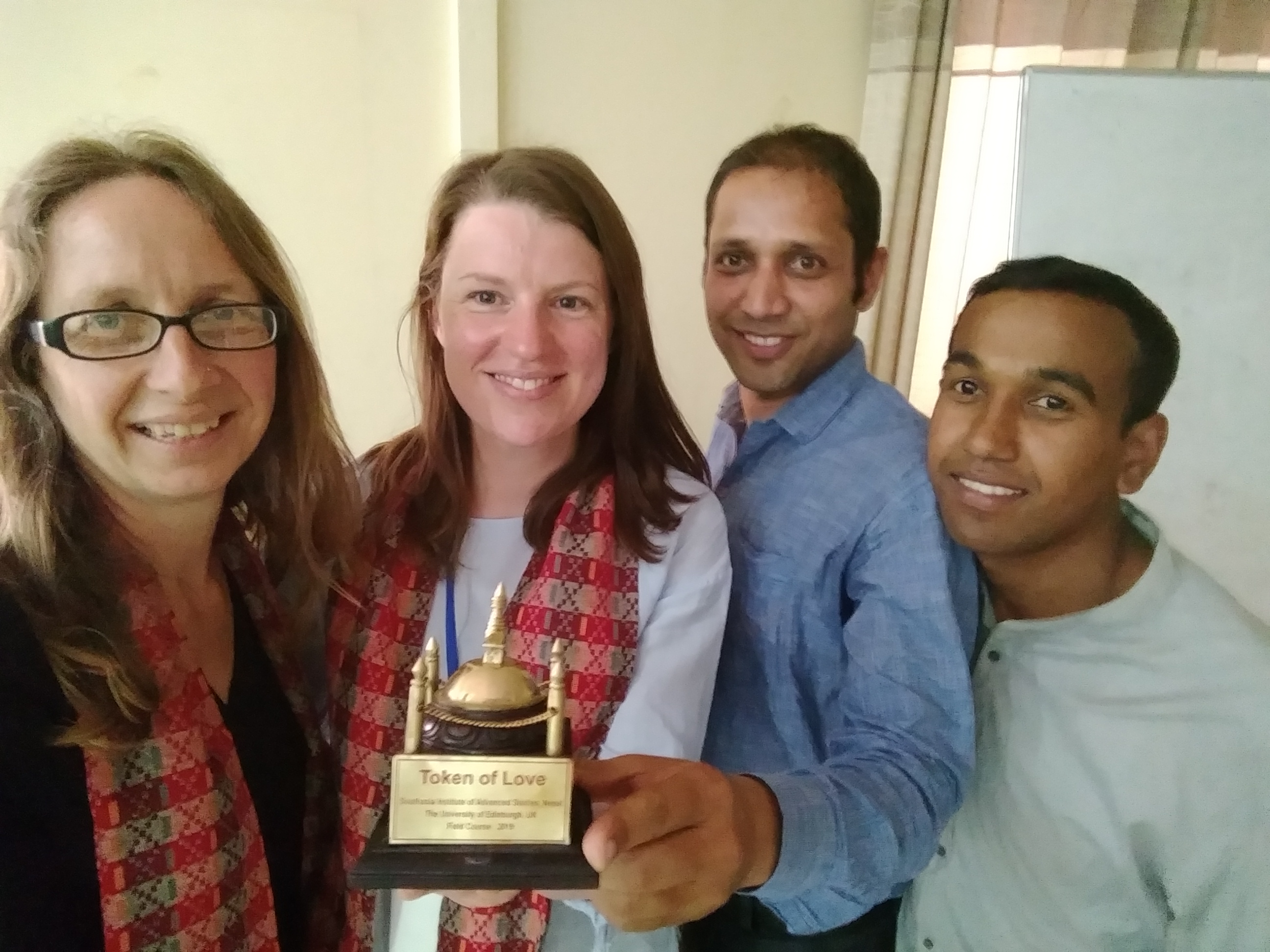Transformative learning through fieldwork and collaborations
Dr Sam Staddon (Lecturer in Environment & Development, University of Edinburgh)
Where to start??! Sat on the plane home, I am trying to organise my notes and thoughts gathered during the last nearly 2 weeks of field trip to Nepal alongside 29 Masters students studying ‘environment and development’ at the University of Edinburgh. It is hard to find the words to capture or convey even a small portion of all that has taken place, but I will attempt here to draw out a few key moments and memories.
It is said that at the heart of field work is a direct, active encounter with “the other” (Hope 2009), and that it is this encounter which makes fieldwork challenging, at times difficult, but thus such a valuable mode of learning. After hearing from Nepali professionals working in development and environmental governance, from visiting communities managing resources such as water and forests, and from observing how Nepalis negotiate the city of Kathmandu and each other, students on the trip certainly had much to reflect on of ‘the other’. Coming from a diverse range of countries from the global North and South, and from a range of undergraduate disciplinary training, comparison and the search for similarity and difference took multiple forms. The physical environment was frequently discussed, for example the air pollution in Kathmandu valley, as was the social setting, including how Nepalis work communally through informal networks and relations. Whilst contrast provided the opportunity to reflect upon and debate ‘the other’ i.e. the people, places and processes encountered through the field work, discussion by the end of the trip shifted to commonalities and the fundamental sameness of us all as human beings and our desire to lead a free and fulfilling life. This recognition emerged not from the reading done in class before being in Nepal, but by “having a go” themselves through small group research project work, during which students engaged in interviews, participatory mapping and observation with the public and professionals around issues of waste management, water access, air pollution, private-public partnerships and gendered and generational perceptions of clothing re-use. Much learning also took place during ‘time off’, when students appreciated the opportunity to move around the city “without having someone hold our hands”, and as a result of which one shared that “that was the day I fell in love with Kathmandu”. Emotions played a huge part in the learning process, from feelings of love for the country and its people, to inspiration and enthusiasm from ‘having a go’ at research, to feelings of sadness and “heartbreak” at the lived realities of Nepal’s marginalised communities, to gratitude and humbleness at the generosity of all those people encountered along the way. Whilst field work may be driven by a desire to learn all about ‘the other’ (person, place or process), fundamentally perhaps the true value is in learning about ourselves – ourselves in an ‘other’ place or position perhaps – and how our thoughts, assumptions and ideas for action might change through what we experience, observe and feel. Students certainly shared such feelings of learning on the last day’s reflection session, and that for me, made all the hard work gone into preparing for the trip so worthwhile and rewarding, and ultimately that made the trip such a success.
The success of the trip and the learning it engendered was only possible however because of the collaboration with SIAS, who hosted and facilitated the entire experience in Nepal. SIAS, as ‘an indigenous platform…to nurture and promote critical research, scholarship and teaching…[to] fill the critical gap in knowledge generation and capacity…[for] addressing social and environmental challenges’ (https://sias-southasia.org/), was the perfect collaborator for the trip. SIAS staff not only looked after and took care of us as individuals, but importantly created a vital space for sharing experience and expertise in development and environmental governance, both from those within the organisation and from other professionals and wider society. SIAS’s move to hire Nepali Masters students to work alongside the UoE students was a brilliant one, as beyond merely translating during group research projects, they stimulated a sense of familiarity, friendship and co-learning amongst all involved.
I cannot wait for next year’s field trip…although I do fear that future trips may never be a great as this first one, given we all shared such a steep learning curve of organisation and of mutual understanding and appreciation. Of course the chance to eat momos every day and to dance together into the night, will make it all alright – as of course will the fact that the trip will change every year with a new cohort of students and perhaps staff. We will never learn all about Nepal and its people – which some students thought was their task when arriving – but I truly hope that we shall continue to share, reflect and learn together in order that we all engage in more transformative ways to change our unequal world (cf. Roy et al. 2016).
Publish date :- 2019/04/29
References:
Hope (2009) The Importance of Direct Experience: A Philosophical Defence of Fieldwork in Human Geography, Journal of Geography in Higher Education, 33, 169-182.
Roy et al. (2016) Encountering Poverty. Thinking and Acting in an Unequal World. University of California Press.
“Views expressed here are personal and not associated with any affiliated organisations”





